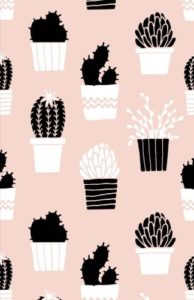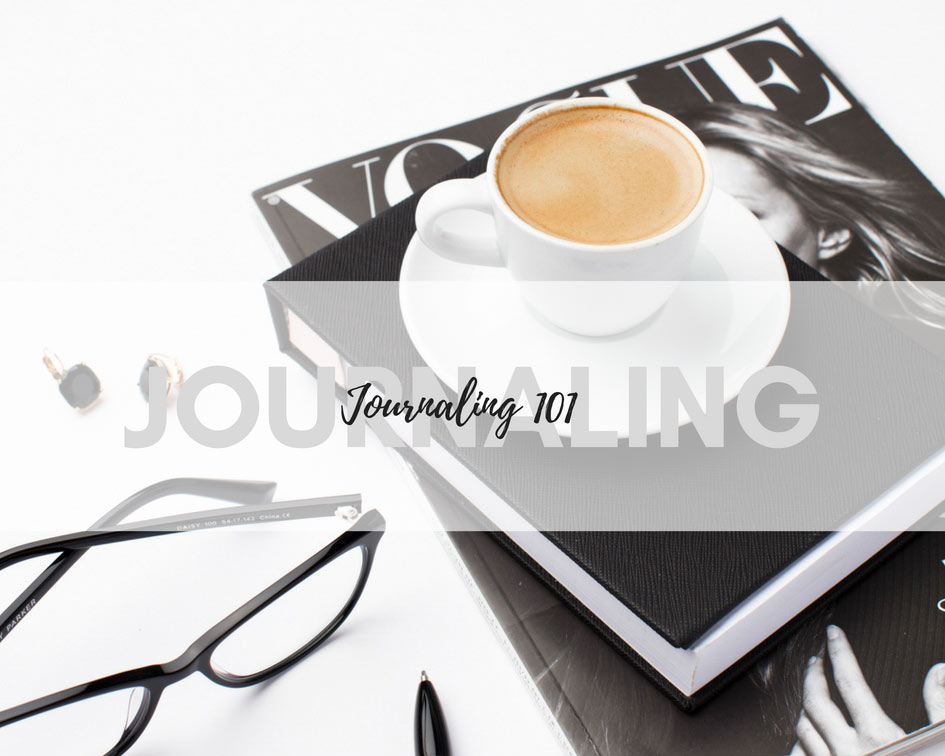
What is journaling?
When I started exploring journaling as a personal growth tool, I was struck with memories of my younger self writing about my crushes, the problems of the day or my deepest darkest secrets at the ripe age of thirteen. But with the explosion of the personal development and emotional intelligence industries, journaling has evolved to be one of the best self-awareness tool out there.
Simply put, journaling is a tool of emotional exploration, a form of free self-expression. It’s a safe space to explore difficult feelings and situations in a healthy and creative way. It is taking time to write (best done with old fashion pen and paper) about our thoughts, feelings, emotions and sensations.
It has been said that writing is the window to our soul – no wonder it can seem so hard at times!
Journal can help you de-stress, eat healthier, boost self confidence and help you to come up with creative solutions to problems. When you express your feelings through written expression, you are taking steps to work through your problems rather than avoiding them. It can be uncomfortable and BEAUTIFUL at the same time! Building a impactful journaling practice (and yes it’s another practice) takes patience and consistency, but the mental, emotional, and spiritual payoff far outweigh the effort. It helps you build your emotional muscles to deal with life’s difficulties and uncertainties.
Benefits of journaling
If you’re still a little skeptical or hesitant to dive into a regular journaling practice, it might help to take a look at some of the (many) benefits. Aside for helping our general wellbeing and promoting creative thinking, journaling:
- Promotes mindfulness. As you let words and thoughts flow, past frustrations and future anxieties lose steam when you focus on the present moment, the practice helps focus a wandering mind.
- Improves communication skills. Regular writing can help you learn to process and communicate increasingly complex ideas more effectively.
- Helps with healing. Expressive or freeform writing, for some of us, can be the route to healing from emotional, physical, and psychological pain. Stress from a traumatic experiences can cause emotional blockages, journalling provides an emotional outlet and potential release from such suffering.
- Process stressful events. Journaling about what you encounter throughout your day can help you better deal with difficult life experiences. The key is to expand your focus from being purely on emotions to also include thoughts and feelings. It might be a good time to challenge yourself as your write to see a situation from an outside perspective.
- Sparks creativity. Creativity can often get blocked by judgement, doubt or looking at things in old ways. Free writing helps your ability to create with flow. When you write without thinking about it (stream of consciousness writing) it can help bring up ideas or thoughts that you never knew you had in us.
- Builds dreams. Your random scribbles often are the gateway to your biggest dreams, wishes, and ambitions. Writing these things down actually signals to the brain that this is important, increasing your likelihood of moving closer to making them a reality.
How to journal
Like mindfulness, journaling by definition is a rather simple concept. You pick up a pen and you start to write. If it’s so easy, then why do so many beautiful journals (yeah we are obsessed with buying them too) sit with empty pages in them? It’s because we tend to overcomplicate the act of putting our thoughts on paper.
Building a practice can be as easy as committing to writing for a certain amount of time, say 10 minutes a day, or to filling at least one page of your pretty journal every single morning as your first get out of bed, or it can be committing to writing whatever it is in your mind/heart on that given day.
To make it a little easier, we’ve outlined four types of journaling you can incorporate into your practice.
1. Gratitude Journal
Keeping a gratitude journal has been shown to increase our happiness levels. The basic practice is straightforward, simply write 3-5 things you are grateful for within a given timeframe. Some people will do this daily, writing a single sentence of what they are most grateful for within the past day – ranging from the mundane to the sublime to the timeless. But, it is more beneficial to include a gratitude practice in the rotation of other types of journaling you are doing.
A few tips on getting the most out of your gratitude journal:
- Go deep. Elaborate on the details of what you are grateful for carries way more benefit than just writing a long list of things
- Get personal. Focus on the people who you love who impact your life more so than objects or things of little value.
- Savor surprises. Write about life’s surprises and unexpected events, as these tend to bring up high levels of gratitude.
2. Morning Pages (See The Artist’s Way by Julia Cameron)
Based on the popular process introduced by Julia Cameron, morning pages involves capturing your stream of consciousness. You simply write (by hand) three pages of whatever comes to your mind done first thing in the morning. There is no WRONG way to do morning pages. They can be about anything and everything that crosses your mind.
Morning pages have been known to be thought-provoking, provide clarity, and help you prioritize your day. The best tip to remember is not to overthink it, simply fill 3 pages each and every morning.
3. Prompted or Activity-based Journaling
Using journal prompts can be great for those who get stuck with not knowing what to write about when it comes time to sit down and journal. You can ask yourself easy or tough questions, I recommend stretching yourself beyond the surface ‘how was my day’ type of questions and really get creative juices flowing. Write about your biggest dreams, your daily activities, what scares you, the decisions you have made, the encounters you’ve had. Use your journal to unlock the door to your deepest desires, true callings, and biggest beliefs.
Our top journal pics
Marble + Gold Notebook (get it here)

The classic Moleskine Classic Notebook (get it here)
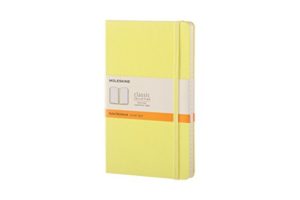
The Five Minute Journal (get it here)
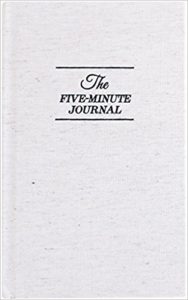
Practice You: A Journal by Elena Brower (get it here)
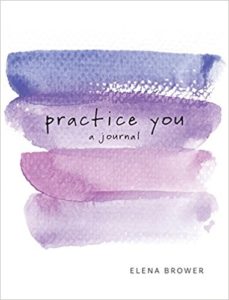
Zen as F*ck: A Journal for Practicing the Mindful Art of Not Giving a Sh*t (get it here)
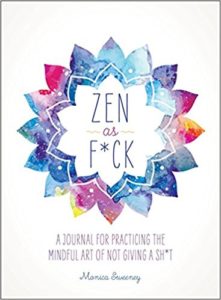
Bullet Journal: Cactus Pink Notebook (get it here)
